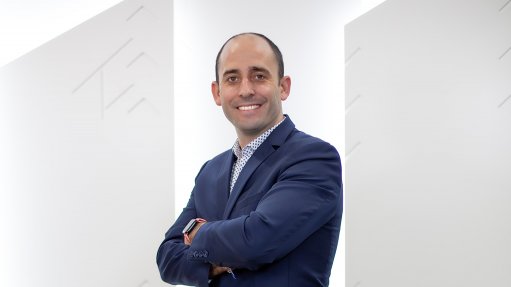Medical systems a key focus for local unit of Fujifilm
Fujifilm South Africa’s strong lineage of medical systems, digital and computer radiography systems and X-ray film is making its mark as growth more than doubles year-on-year.
After completing a successful overhaul of Africa’s first Fujifilm Innovation Centre, Fujifilm South Africa MD Takeo Hata says its medical division is gaining traction, accelerating at a faster pace than the more well-known photographic and film divisions.
The local branch of the global technology giant showcased its medical range during a tour of the newly revamped one-stop demonstration area at its Roodepoort warehouse last month.
The improved Innovation Centre is now home to the Amulet Innovality, Fujifilm’s flagship digital mammography X-ray unit with three-dimensional (3D) capability that helps in the early-stage detection of breast cancer.
The latest addition to the medical solutions portfolio boasts an innovative dual-angle approach to tomosynthesis and an unsurpassed 50 μm pixel output to better support breast screening and diagnostic mammography requirements.
It joins the Fujifilm digital radiography (FDR) system Smart X-ray machine that assists with, among others, the screening of tuberculosis patients.
The introduction of FDR, which uses ISS-CsI technology, followed on from Fujifilm’s digital revolution in the 1980s with the development of the world’s first digital X-ray system, bringing new speeds and efficiencies, and achieving wider availability for patients and a reduction in operational costs.
The Fujifilm computed radiology, released in 1983, was developed through Fujifilm’s pioneering technology in a new field, leading to widespread digitisation of radiography, as well as creating the foundation for advanced 3D imaging applications and lower radiation doses.
While often perceived as a film and photography company, Fujifilm positioned itself as a medical imaging specialist, with its healthcare business generating $4.2-billion of its global revenues of $23-billion.
“One of our biggest strengths is diagnosis within the medical sector,” Hata adds.
It all started with the first steps in the development of X-ray film in 1936, and later advances in imaging film and archiving film set the course for a long line of breakthrough technologies, he says.
Since then, the company has maintained its focus on technological innovations, with investments in digital radiography, endoscopy, ultrasound, healthcare information technology, contract development and manufacturing, regenerative medicine and new drug development.
The company has made strides in its acceleration of complex diagnosis with an artificial intelligence- (AI-) driven screening system – a software tool used to support radiologists’ clinical decision-making.
Fujifilm has been involved in the development of AI capable of reading various types of information from images and supporting diagnostic imaging workflow, leveraging its heritage of image processing with deep learning and applying the technology in the fields of image diagnostics and photography.
In South Africa, this has already had a huge impact on the screening of lung disease, increasing the number of patients that can be diagnosed on a daily basis.
Over the next few years, Fujifilm intends to accelerate the development of AI-based technology to enable field clinicians or workers to undertake comprehensive analysis and decision-making on the basis of various data collected through Fujifilm's business activities, including data sourced through a combination of biological information and diagnostic imaging.
In addition, Fujifilm is working with academic institutions to develop the next generation of AI technology to link its technology with documented knowledge, such as diagnostic reports and medical literature, and human knowledge from experience.
In line with the company’s strategy to become a comprehensive healthcare company, it added pharmacology to its portfolio, acquiring Toyama Chemical in 2008 to absorb strong expertise in the research and development of drugs to fight infectious and neurological diseases.
Comments
Press Office
Announcements
What's On
Subscribe to improve your user experience...
Option 1 (equivalent of R125 a month):
Receive a weekly copy of Creamer Media's Engineering News & Mining Weekly magazine
(print copy for those in South Africa and e-magazine for those outside of South Africa)
Receive daily email newsletters
Access to full search results
Access archive of magazine back copies
Access to Projects in Progress
Access to ONE Research Report of your choice in PDF format
Option 2 (equivalent of R375 a month):
All benefits from Option 1
PLUS
Access to Creamer Media's Research Channel Africa for ALL Research Reports, in PDF format, on various industrial and mining sectors
including Electricity; Water; Energy Transition; Hydrogen; Roads, Rail and Ports; Coal; Gold; Platinum; Battery Metals; etc.
Already a subscriber?
Forgotten your password?
Receive weekly copy of Creamer Media's Engineering News & Mining Weekly magazine (print copy for those in South Africa and e-magazine for those outside of South Africa)
➕
Recieve daily email newsletters
➕
Access to full search results
➕
Access archive of magazine back copies
➕
Access to Projects in Progress
➕
Access to ONE Research Report of your choice in PDF format
RESEARCH CHANNEL AFRICA
R4500 (equivalent of R375 a month)
SUBSCRIBEAll benefits from Option 1
➕
Access to Creamer Media's Research Channel Africa for ALL Research Reports on various industrial and mining sectors, in PDF format, including on:
Electricity
➕
Water
➕
Energy Transition
➕
Hydrogen
➕
Roads, Rail and Ports
➕
Coal
➕
Gold
➕
Platinum
➕
Battery Metals
➕
etc.
Receive all benefits from Option 1 or Option 2 delivered to numerous people at your company
➕
Multiple User names and Passwords for simultaneous log-ins
➕
Intranet integration access to all in your organisation


















